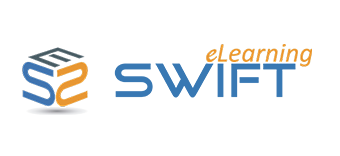eLearning services are more than a digital replacement for classroom training—they’re strategic enablers of transformation. Across industries, organisations are using them to solve real business problems, improve performance, and foster an agile, learning-driven culture.
A. Corporate Upskilling at Scale
A multinational technology company faced a major challenge: how to upskill 10,000 employees across 12 countries on a new product line within three months. Traditional classroom sessions were impossible due to time zones and travel costs.
The organisation partnered with a professional eLearning service provider to design a blended learning programme that combined self-paced microlearning modules with live virtual sessions.
Each course included short video explainers, scenario-based quizzes, and peer discussion forums. With real-time analytics from the Learning Management System (LMS), managers could track who completed the training and identify skill gaps.
The results were impressive—completion rates rose to 94%, and employees reported feeling more confident in client interactions. The success also set the foundation for continuous digital learning within the company.
B. Compliance and Safety Training in High-Risk Sectors
In industries like aviation, oil and gas, or healthcare, compliance isn’t just optional—it’s life-saving. A global shipping company, for instance, needed to ensure that every seafarer completed annual safety and anti-bribery training, regardless of location or language.
The eLearning provider developed multilingual, interactive modules accessible even in low-bandwidth conditions at sea. Gamified assessments and scenario-based decision-making exercises helped crew members retain key procedures and understand the real-world consequences of non-compliance.
By digitising their compliance programme, the company achieved 100% course completion and drastically reduced audit preparation time. More importantly, it fostered a stronger safety culture onboard.
C. Education and Government Initiatives
Educational institutions and government bodies are also turning to eLearning services to improve accessibility. For instance, a public education department partnered with a provider to train thousands of teachers in digital literacy and blended teaching methods.
Using an LMS, progress could be tracked at individual and regional levels, ensuring accountability. The initiative not only improved teacher performance but also brought consistency in quality across remote and urban schools.
Such projects show how eLearning services can drive social impact by bridging knowledge gaps at scale.
D. The Takeaway: Turning Learning into Measurable Impact
What these examples have in common is that eLearning services turn training from a one-time event into an ongoing performance driver. They make learning measurable, consistent, and scalable.
Organisations can now monitor skills development, measure ROI, and continuously refine their content based on data insights. Whether it’s onboarding, leadership development, or technical training, the combination of instructional design, engaging content, and robust analytics ensures that learning translates into tangible business results.
Ultimately, eLearning services are not just about courses—they are about capability. They enable companies to evolve faster, empower employees to grow continuously, and ensure that learning becomes an integral part of everyday work life.

